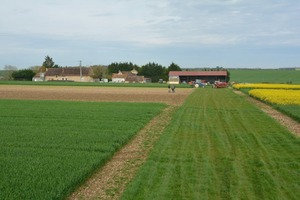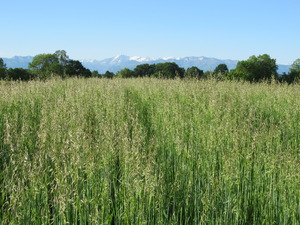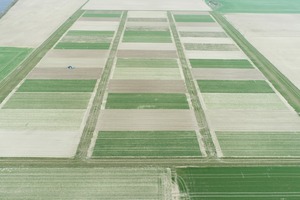Designing innovative and diversified cropping systems: the Syppre experimental network
Field experiment 4, France



Trial location and duration
Field Experiment 4 includes 3 sites from the Syppre experimental network: Berry, Champagne, and Bearn.
Locations:
- Berry (46°50′ 49.9′′N, 1° 32′ 14.4′′E);
- Champagne (49°17′ 7.5′′N, 4° 3′ 50.7′′E)
- Bearn (43°17′ 51′′N, 0° 15′ 36′′W)
Trial duration: 2015-2025 (at least)
Objectives and research question
Designing innovative and diversified cropping systems that reconcile global and local issues.
Issues common to the three sites:
- increase or maintain energy production and income,
- reduce thetreatment frequency indices by 50%,
- reduce mineral nitrogen use and greenhouse gas emissions by 20%
Issues specific to Berry:
- Improve soil fertility (nitrogen mineralization, soil structure)
- Improve weed management
Issues specific to Champagne:
- Increase production
- Improve production quality
- Reduce mineral nitrogen (GHG)
- Improve soil fertility (organic matter, nitrogen dependency, slaking, erosion)
Issues specific to Bearn:
- Better control of weeds and soil pests with fewer plant protection products
- Increase species diversity
Experimental design
At each site, two cropping systems were compared:
- a control system representing the typical rotation implemented in the production area with optimized crop management practices, and
- one [Berry, Champagne] or several [Bearn] innovative systems co-designed with local advisors and farmers to meet global and local issues.
At each trial site, each stage in the rotation of each system is tested every year. Crops are randomized into three replicated blocks. Each unit plot is 24mx75m [Berry; Champagne] or 12mx50m [Bearn]. The crop rotations are shown in Table 1.
Main findings and highlights
Generic findings:
- High reduction in input and greenhouse gas emissions in all innovative systems compared to the respective control systems.
- Low success rate of most of the diversification crops (legume crops in Berry and Champagne and winter cereal crops in Bearn) that contribute to the overall lower productivity and profitability of the innovative systems.
Specific findings:
- Positioning rapeseed after a crop or a sequence of crops that provide nitrogen (peas in Champagne, lentil-durum wheat succession in Berry) supported rapeseed growth in autumn and reinforced its robustness against pests in the innovative systems in Berry and Champagne.
- In Champagne, sowing rapeseed with strip-till enabled good germination and minimized the risk of slaking.
- The succession of two spring crops in the innovative system helped control foxtail weeds and improved the performances of the following wheat crop in Berry.
- Oat cultivated as a cover crop for energy production was very productive when sown between two grain maize crops in Bearn.
- Soybean is well-adapted in the deep soils of Bearn.
- The innovative T3 system meets the global objectives of productivity, profitability, and environmental efficiency in Bearn.
Main challenges
Generic challenges:
- Weed control without glyphosate is still a challenge. Using preventive measures such as crop diversification, false seedbed and direct seeding can help.
- Improving productivity, profitability, low use of inputs and low greenhouse gas emissions without some trade-offs.
Specific challenges:
- Establishing cover crops in a dry summer context in Berry
- Finding crop management strategies that combine strip-till, localised pesticide application, and hoeing to reduce the treatment frequency indices in Champagne.
- Finding crops that can break summer weeds cycles and be cultivated in Bearn.
- Avoiding the impact of Sclerotinia in soybean in short rotations in Bearn

 toccare e scorrere fino al comando Aggiungi alla schermata iniziale.
toccare e scorrere fino al comando Aggiungi alla schermata iniziale.